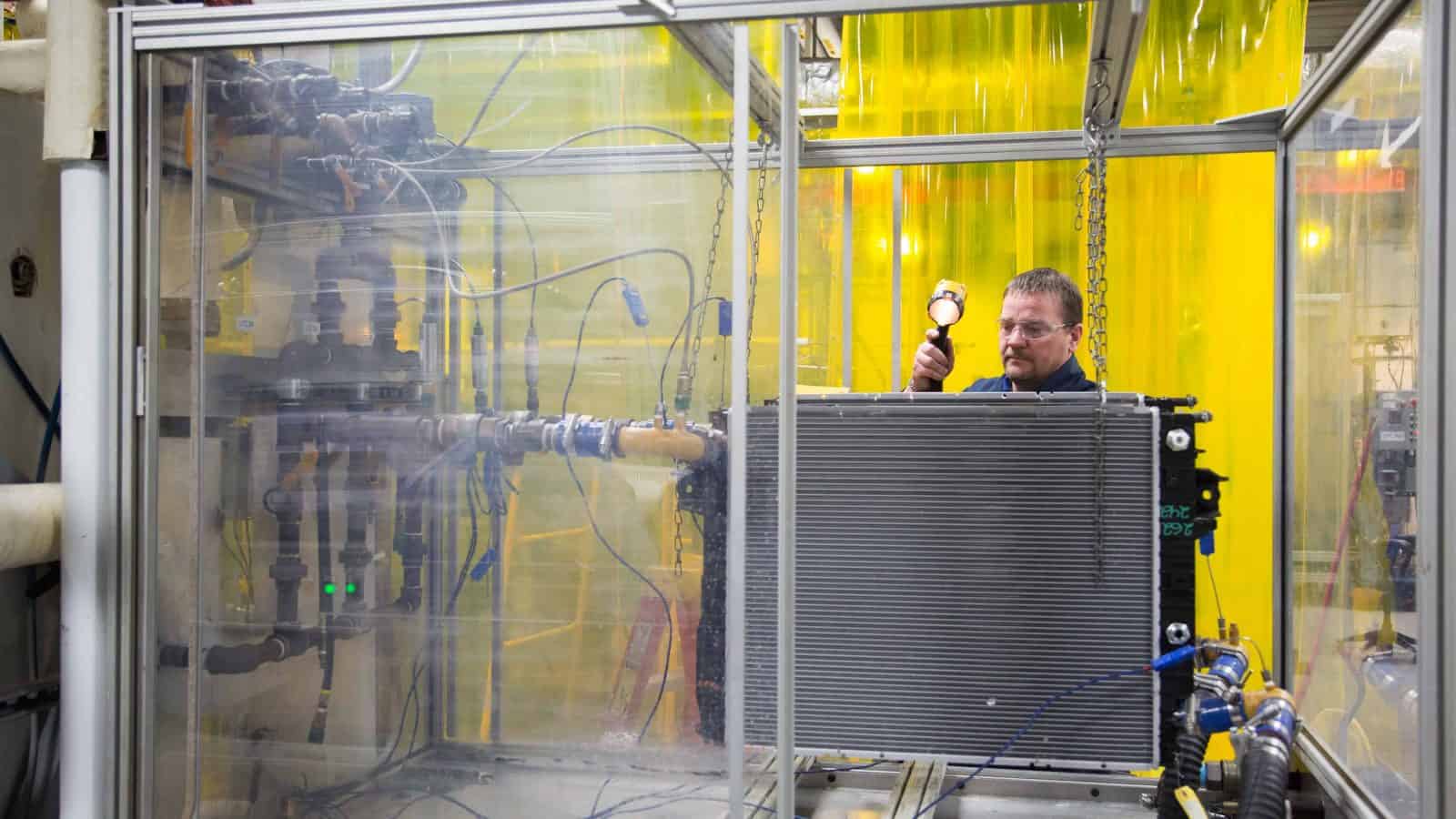DOE: U.S. Must Build Out Power Generation Capabilities—or Lose AI Race

The U.S. will lose the race for leadership in artificial intelligence unless it ramps up baseload power generation, the Energy Department said in a report issued Monday (E&E News).
What’s going on: If older, traditional-source power plants continue to close at the current pace and the construction of new facilities is not sped up, “DOE said that parts of the mid-Atlantic and Great Plains regions could face 400 hours of power outages in 2030 in a worst-case scenario where tech companies build giant energy-hungry AI data centers unabated.”
- In the scenario laid out in the report, Eastern states served by regional transmission organization PJM Interconnection—including Maryland, Pennsylvania and Virginia—would see “power shortages … that could total more than a month over the course of the year” by 2030, owing in large part to unchecked data center growth.
Yes, but … The report also notes that grid operators would not greenlight data center construction that would harm “the reliability of the system.”
The big picture: Some 104 gigawatts of traditional power plant capacity is slated for retirement by 2030, according to the DOE—and it isn’t being replaced fast enough to meet projected demand. (For reference, one gigawatt is capable of powering about 850,000 homes.)
- Last month, the NAM commended the administration for its plans to repeal the previous administration’s power plant regulations, which would have mandated unfeasibly stringent emissions rules on traditional-source power plants.
- “A consensus of grid operators in U.S. competitive power markets like PJM and the Southwest Power Pool is that grid reliability faces extraordinary stresses if the heavy rate of [traditional power] plant retirements continues,” according to E&E News.
- President Trump has pledged to beat China in grabbing the golden AI ring, an endeavor that will require far more generation—and one which the DOE report classifies as a national emergency.
Our take: “This report from the DOE underscores the need for the U.S. to maintain baseload power generation,” said NAM Director of Energy and Resources Policy Michael Davin. “We need to shore up, not shut down, power generation.”
- The NAM has long urged policymakers to accelerate the permitting process for energy projects. In May, it responded to a request for information from the House’s AI and Energy Working Group seeking input about how to boost energy production, secure the grid and outcompete China in AI.
- “Streamlining permitting processes, cutting red tape, requiring federal agencies make timely decisions and reducing the potential for baseless litigation will help prevent years-long delays that undermine manufacturers’ ability to compete globally,” the NAM told the committee.
